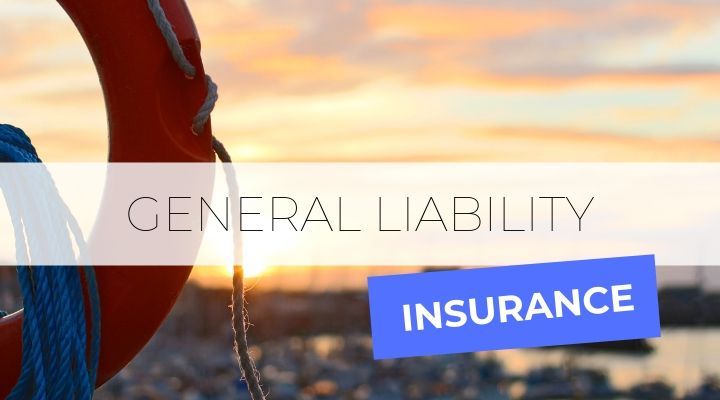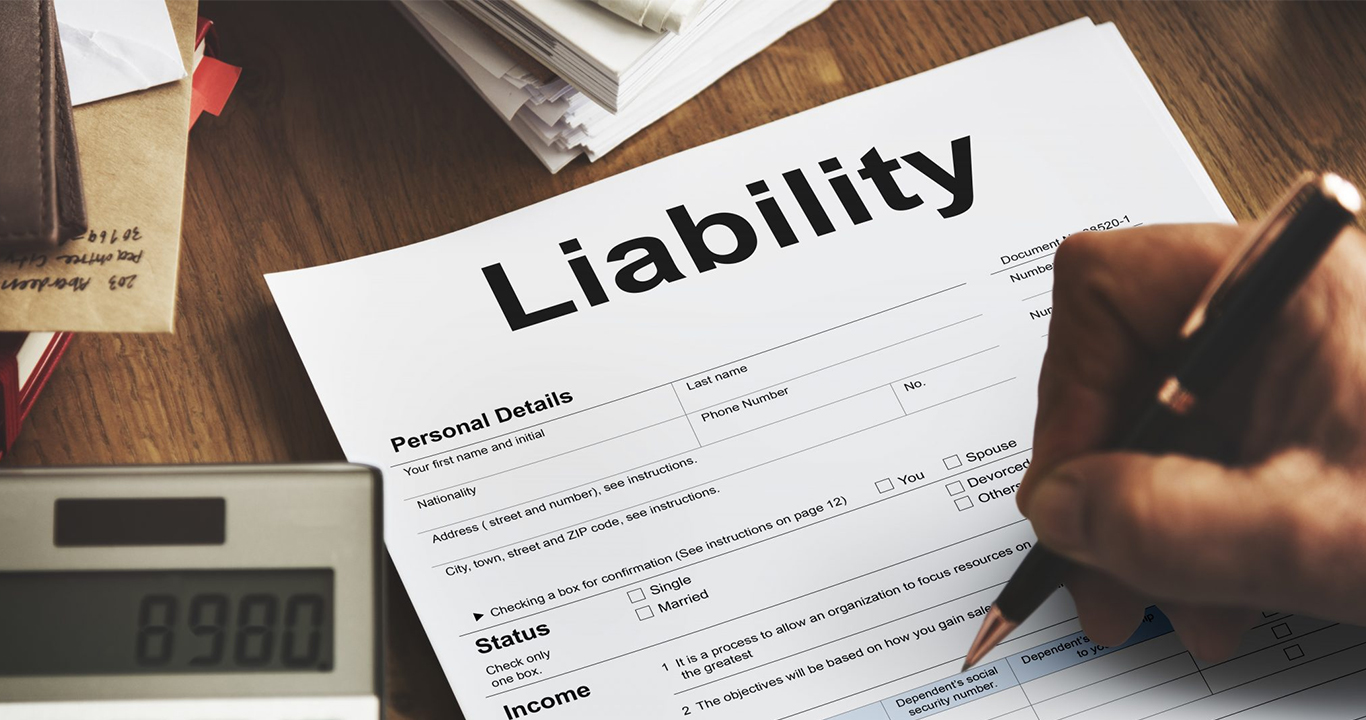Corporate general liability insurance is essential for businesses to safeguard against unexpected financial risks. From covering legal expenses to protecting against property damage claims, this type of insurance provides a safety net that every business should consider. In this detailed guide, we will explore the various aspects of corporate general liability insurance to help you make informed decisions for your business.
Importance of Corporate General Liability Insurance
Corporate General Liability Insurance is a crucial aspect of risk management for businesses of all sizes. This type of insurance provides coverage for legal costs and damages in the event that a business is sued for bodily injury or property damage caused by their operations, products, or services.
Coverage of Corporate General Liability Insurance
Corporate General Liability Insurance typically covers:
- Third-party bodily injury
- Third-party property damage
- Advertising injury (e.g., defamation, copyright infringement)
- Legal defense costs
Why Businesses Need Corporate General Liability Insurance
Businesses need Corporate General Liability Insurance to protect themselves from the financial consequences of lawsuits related to their operations. Without this coverage, a single lawsuit could potentially bankrupt a company.
Examples of Situations Where Corporate General Liability Insurance is Essential
- If a customer slips and falls in your store and is injured, your insurance can cover their medical expenses and any legal costs if they decide to sue.
- If a product you sell causes harm to a consumer, resulting in a lawsuit, your insurance can help cover the damages and legal fees.
- If a competitor accuses your business of false advertising, your insurance can help cover the costs of defending against the claim.
Types of Coverage Offered

General liability insurance typically includes the following types of coverage to protect businesses from potential risks and liabilities:
Bodily Injury Coverage
- Provides coverage for physical injuries to third parties, such as customers or vendors, that occur on business premises or as a result of business operations.
- Helps cover medical expenses, legal fees, and compensation for the injured party.
Property Damage Coverage
- Covers damages to third-party property caused by the business operations or employees.
- Includes repair or replacement costs for the damaged property.
Personal and Advertising Injury Coverage
- Protects against claims of libel, slander, copyright infringement, or false advertising.
- Provides coverage for legal defense costs and settlement payments.
Products and Completed Operations Coverage, Corporate general liability insurance
- Covers liabilities related to products sold or services rendered by the business, including defects, malfunctions, or injuries caused by the products.
- Helps cover legal costs and compensation for damages or injuries caused by products or services.
Medical Payments Coverage
- Offers coverage for medical expenses incurred by third parties who are injured on business premises, regardless of fault.
- Helps cover immediate medical treatment costs without the need for a liability claim.
Legal Defense and Judgment Coverage
- Provides coverage for legal defense costs, including attorney fees, court fees, and settlements or judgments in covered liability claims.
- Ensures protection against financial losses due to legal disputes or lawsuits.
Cost Factors and Considerations
When it comes to corporate general liability insurance, the cost can vary based on several factors that influence the overall pricing. Understanding these factors is crucial for businesses to manage and reduce insurance costs while ensuring adequate coverage.
Factors Influencing Cost
- The size and nature of the business: Larger businesses with higher risks may incur higher premiums.
- Claim history: A history of frequent claims can lead to increased costs.
- Industry risks: Some industries are inherently riskier and may face higher premiums.
- Coverage limits and deductibles: Higher coverage limits and lower deductibles can increase costs.
- Location: Businesses located in areas prone to natural disasters or high crime rates may face higher premiums.
Managing and Reducing Costs
- Implement risk management strategies to prevent claims and demonstrate proactive measures to insurers.
- Shop around and compare quotes from different insurance providers to find the most cost-effective option.
- Consider bundling general liability insurance with other business insurance policies for potential discounts.
- Review and update coverage regularly to ensure it aligns with the changing needs and risks of the business.
- Invest in safety measures and employee training to reduce the likelihood of accidents and claims.
Importance of Balancing Coverage and Cost-Effectiveness
Finding the right balance between coverage and cost-effectiveness is essential for businesses when purchasing general liability insurance. While cost is a significant factor, ensuring adequate coverage is equally important to protect the business from potential risks and liabilities. By understanding the cost factors, managing expenses effectively, and evaluating coverage needs, businesses can make informed decisions to strike the right balance between protection and affordability.
Claims Process and Coverage Limitations: Corporate General Liability Insurance

When it comes to corporate general liability insurance, understanding the claims process and coverage limitations is crucial for businesses to ensure they are adequately protected in case of any unforeseen incidents.
The typical steps involved in filing a claim for corporate general liability insurance usually include notifying the insurance company as soon as possible, providing detailed information about the incident, cooperating with the investigation, and submitting any necessary documentation to support the claim.
Common Limitations and Exclusions
- One common limitation of coverage is intentional acts or negligence. If the incident was caused intentionally or due to negligence on the part of the business, the insurance policy may not cover the damages.
- Another common exclusion is coverage for professional mistakes or errors. Businesses may need a separate professional liability insurance policy to cover such claims.
- Coverage limitations may also apply to specific types of incidents, such as pollution or cyber-related claims. It’s essential to review the policy carefully to understand what is and isn’t covered.
Maximizing Coverage and Minimizing Claim Denials
It is crucial for businesses to take proactive measures to maximize their coverage and minimize the risk of claim denials. This includes maintaining accurate records, implementing risk management strategies, and promptly reporting any incidents to the insurance company.
- Regularly reviewing and updating your insurance policy to ensure it aligns with your business needs can help avoid coverage gaps.
- Seeking guidance from an insurance professional can also be beneficial in understanding the policy terms and conditions to make informed decisions.
- Implementing safety protocols and training programs for employees can help reduce the likelihood of accidents and potential claims.
Legal Compliance and Regulations
In the business world, legal compliance and regulations play a crucial role in shaping the operations of companies. When it comes to corporate general liability insurance, businesses must adhere to specific legal requirements to ensure they are adequately protected in case of unforeseen events.
Legal Requirements for Corporate General Liability Insurance
- Most states in the US require businesses to have general liability insurance to operate legally.
- Insurance coverage limits and requirements may vary depending on the industry, size of the business, and location.
- Businesses may also need to comply with specific regulations related to the type of activities they engage in.
Impact of Compliance with Regulations
- Compliance with legal requirements ensures that a company is operating within the bounds of the law, reducing the risk of penalties or fines.
- Having the necessary insurance coverage in place can provide peace of mind to business owners and stakeholders, knowing that they are protected against potential liabilities.
- Compliance with regulations can also enhance the company’s reputation and credibility in the industry.
Consequences of Non-Compliance
- Failure to comply with legal requirements related to corporate general liability insurance can result in fines, penalties, or even legal action against the business.
- Non-compliance may also lead to gaps in insurance coverage, leaving the company vulnerable to financial losses in the event of a lawsuit or claim.
- Insurance providers may deny coverage or reduce payouts if it is discovered that the business was not compliant with regulations at the time of the incident.
Choosing the Right Insurance Provider
When it comes to selecting the right insurance provider for your corporate general liability needs, there are several important factors to consider. Evaluating the reputation and financial stability of insurance companies, as well as negotiating terms and ensuring transparency in the insurance agreement, are crucial steps in making an informed decision.
Evaluating Reputation and Financial Stability
It is essential to research and assess the reputation of potential insurance providers. Look for companies with a strong track record of reliability and prompt claims processing. Additionally, consider the financial stability of the insurance company by reviewing their credit ratings and financial reports to ensure they can fulfill their obligations in the long run.
Negotiating Terms and Ensuring Transparency
When discussing insurance terms with potential providers, be sure to negotiate terms that align with your business’s specific needs. This may include customizing coverage limits, deductibles, and premiums to suit your budget and risk profile. Furthermore, ensure transparency in the insurance agreement by carefully reviewing all terms and conditions, seeking clarification on any ambiguous language, and confirming that all agreed-upon terms are clearly documented.
Last Word

In conclusion, corporate general liability insurance is a crucial investment for businesses of all sizes. By understanding the coverage options, cost factors, claims process, and legal compliance requirements, companies can proactively protect themselves from potential liabilities. Remember, choosing the right insurance provider is key to ensuring comprehensive coverage tailored to your business needs.
FAQ Summary
What does corporate general liability insurance cover?
Corporate general liability insurance typically covers bodily injury, property damage, legal defense costs, and personal and advertising injury claims.
How can businesses manage and reduce insurance costs?
Businesses can manage and reduce insurance costs by implementing risk management strategies, maintaining a good safety record, and comparing quotes from different insurance providers.
What are common limitations or exclusions of coverage with this insurance?
Common limitations or exclusions of coverage may include intentional acts, professional errors, pollution, and contractual liabilities.
